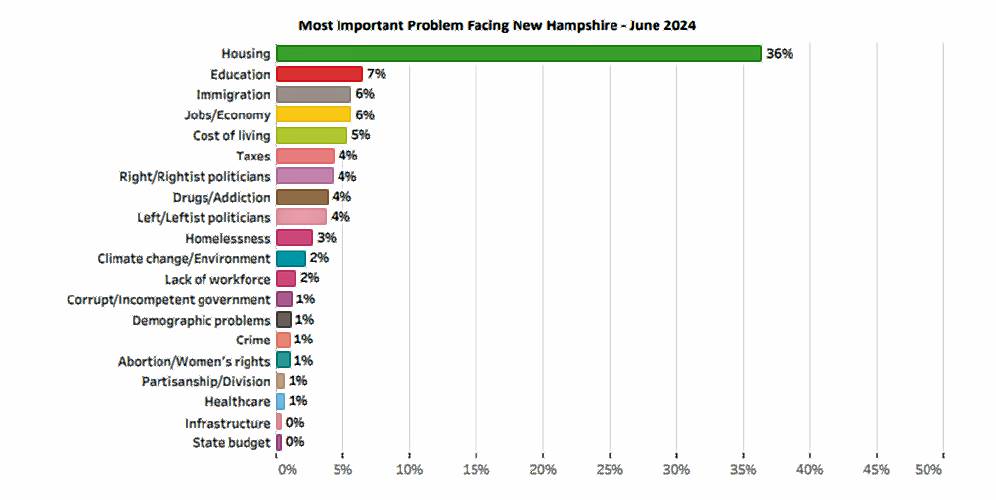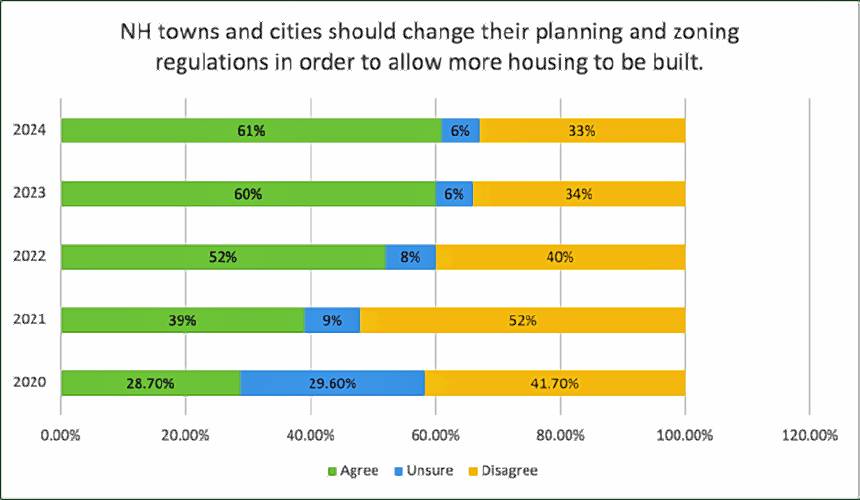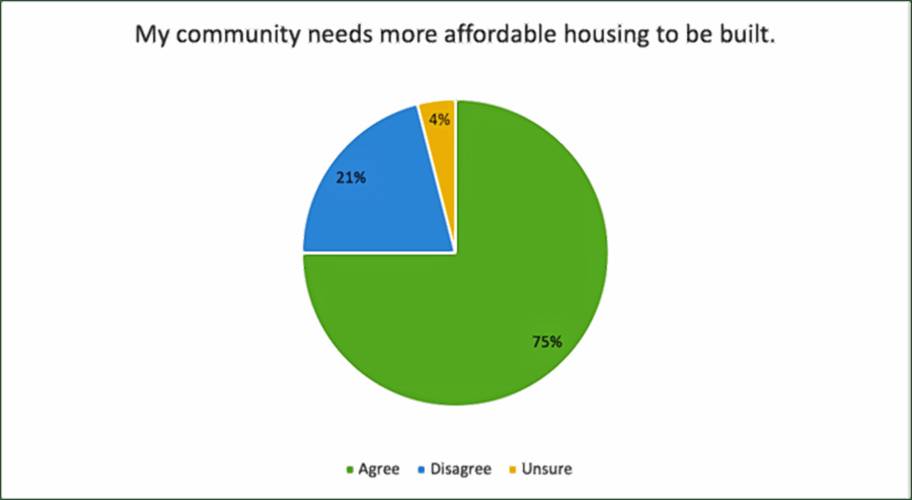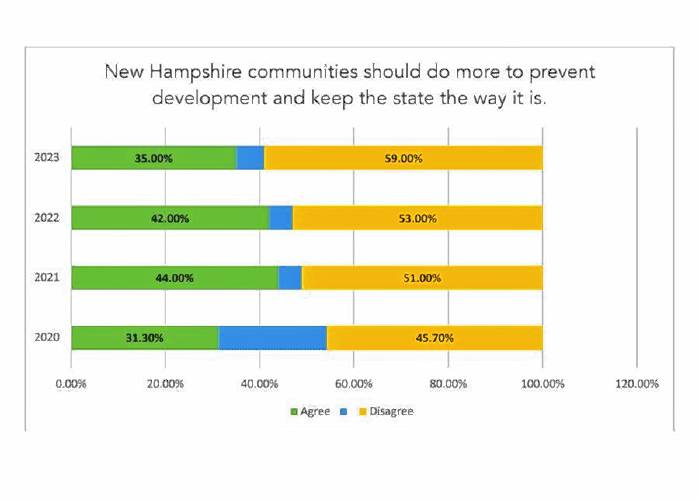Gubernatorial candidates say they talk daily about the housing crisis. Their ideas on root causes and resolutions vary.
| Published: 07-29-2024 2:51 PM |
New Hampshire’s gubernatorial candidates are in agreement with voters: housing in the state is at a crisis point.
To Cinde Warmington, the lone Democrat on the Executive Council, there’s one person to blame for the current state of affairs: Governor Chris Sununu.
To her primary competitor, the former mayor of Manchester, Joyce Craig, the state should have incentivized more construction to increase the inventory.
In the Republican primary, former U.S. Senator Kelly Ayotte points to factors outside of the state’s control, citing high mortgage interest rates.
And former state Senate President Chuck Morse has a more boastful outlook — the state’s current housing crisis is an indicator of New Hampshire’s success.
All four candidates say they routinely talk about the state’s housing crisis – New Hampshire needs 60,000 more units by 2030 to meet demand as homelessness continues to rise. But the four candidates leverage different expertise with their solutions.
Craig said she is the only candidate who has worked with developers to increase the housing stock.
“This hands-on experience is crucial to getting these projects off the ground,” she said. “I negotiated with developers, I allocated over $30 million towards affordable housing initiatives, and now we have over 2,000 housing units in development.”
Article continues after...
Yesterday's Most Read Articles
 Concord may finally buy long-closed rail line with hopes of creating city-spanning trail
Concord may finally buy long-closed rail line with hopes of creating city-spanning trail
 New Cheers owners honor restaurant’s original menu while building something fresh
New Cheers owners honor restaurant’s original menu while building something fresh
 A look ahead at the ‘preferred design’ for Concord’s new police headquarters
A look ahead at the ‘preferred design’ for Concord’s new police headquarters
 New Hampshire targets sexual exploitation and human trafficking inside massage parlors
New Hampshire targets sexual exploitation and human trafficking inside massage parlors
 State rules Epsom must pay open-enrollment tuition to other school districts, despite its refraining from the program
State rules Epsom must pay open-enrollment tuition to other school districts, despite its refraining from the program
As the former Senate President, Morse said he has worked with communities on infrastructure improvements, particularly with water and sewer, to incentivize development.
His hometown of Salem is a great example of what development could look like.
“We had to get water there and look at what we’re doing in housing over there, it’s incredible,” he said. “That’s the relationship that as governor I want to start to build.”
Meanwhile, Warmington positioned herself as the only candidate who challenged Sununu on policy. When he proposed his InvestNH program, a $100 million fund from American Rescue Plan Act dollars to incentivize development, affordability was never mentioned, said Warmington.
“When it first came to the council there wasn’t a word of affordable in there,” she said. “It came back to us with guardrails and we’re building thousands of those units around the state now.”
New Hampshire can’t build its way out of the problem, though, said Warmington. State leaders need to work with private developers to incentivize development but local zoning requirements are hindering that.
“I will incentivize communities to face their zoning ordinances and remove other obstacles from the way of developments so that developers will be encouraged to build in those communities,” she said. “I would propose that we chase that with economic development money in our state.”
Ayotte sees the state helping “cut the red tape” of regulatory hurdles, particularly in the permitting process.
“One of the first things I would do is we need to streamline the state permitting process,” she said. “You need several state agencies to approve… and often they are not working together clearly so projects get hung up in one agency or another.”
Despite party differences, Craig echoed the same sentiment.
“It can take years to get plans through the approval process at the state level so we really have to have a look at that and cut the red tape,” she said. “We’ve got to get this housing going.”
Polling in June from the University of New Hampshire indicated that 36 percent of respondents thought housing was the most pressing issue facing the state. A recent poll from Saint Anselm College also showed that 75 percent of respondents acknowledge more affordable housing is needed in their community.
This year, legislators formed a Special Committee on Housing in the New Hampshire House. Ahead of the session, many dubbed this as the ”year of housing” with several policies introduced.
Success varied, though. The committee passed a handful of bills, but many landlord-tenant laws and local adjustments died in the House Judiciary or Municipal and County Government committees.
None of the candidates followed housing legislation in close detail, though.
Since Morse did not serve in the Senate, he said he wasn’t “privy to all those bills.”
Warmington admitted she does not follow all legislation during the session.
“The legislature has something like 1,000 bills to come forward and I don’t track them all,” she said.
That did not stop her push for Democratic control of the State House, though.
“There are a lot of proposals that in a Democratic legislature that would be more progressive and tackle this problem head on,” she said.
Craig said that she would like to see parking regulations changed – something the legislature passed this session by reducing the number of required parking spaces in multi-family developments to 1.5 – as well as expanding tax incentives for developers.
“What we did in Manchester was we relaxed the parking mandate and I think that could have really been addressed this session,” she said. “It’s worked well here to incentivize more development.”
Her campaign later clarified that she was glad to see the parking policy passed.
Ayotte did not specify any specific pieces of legislation and said as governor she would bring together leaders from both parties.
“As opposed to any particular piece of legislation, I am going to get the leaders of both sides around the table and really find out where our common ground is,” she said.
Legislative efforts need to respect local control but “move us forward on this housing issue,” she said.
Warmington said she is also an advocate of local control, representing such a large district on the Executive Council.
“I see how different our communities are and the solutions in urban areas are not going to be the solutions that will work in rural areas,” she said. “I don’t think imposing requirements from the state level is the right way to go, I think we need to incentivize them and I think they need to be options.”
The Saint Anselm poll – an annual survey of voter attitudes on housing – also showed that 63 percent of respondents think the state should do more to encourage municipalities to remove barriers to development.
Warmington launched a television earlier this month centered on housing and kicked off a state-wide tour of developments, visiting Margueritte’s Place in Nashua.
For Ayotte, conversations on the need for housing – from developers, business owners and residents – happen daily on the campaign trail, she said.
“When I got into this race I knew that housing was going to be an important issue because New Hampshire has great economic opportunity right now. We’re the only state growing in population in New England,” she said. “Since I’ve been out on the campaign trail it’s becoming more apparent to me what an important issue this is.”
Meanwhile, Craig said housing is a basic human right that the state needs to provide to attract young people and allow for working families and seniors to remain.
“We cannot sit back. We can’t afford to sit back,” she said. “We have to act.”











 ‘A little piece of everything I like’: New Pittsfield barbershop brings more than a haircut to downtown
‘A little piece of everything I like’: New Pittsfield barbershop brings more than a haircut to downtown NH judge decides to pause Trump’s birthright citizenship order
NH judge decides to pause Trump’s birthright citizenship order Canterbury honors ‘real heroes’ with updated Military Veterans’ Project
Canterbury honors ‘real heroes’ with updated Military Veterans’ Project Look, up in the sky! It’s… an Airstream trailer?
Look, up in the sky! It’s… an Airstream trailer?
